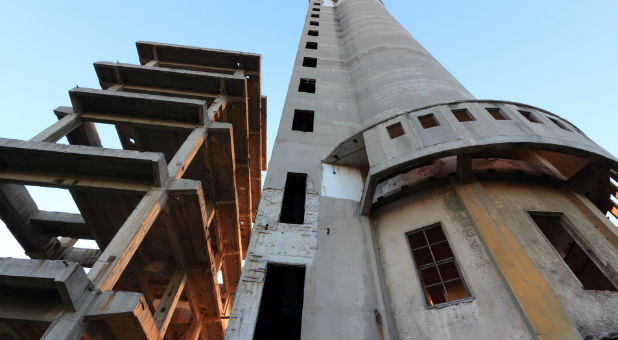In the Land Where Atheism Prevails, Revival Gains Surprising Foothold
As Pastor Jeton quietly speaks, one would never guess the horror he and his people have lived through in this picturesque area of the Balkans. Jeton is a Kosovar Albanian—over 80 percent of the population of Kosovo are Albanian, but in 1998, neighboring Yugoslavian Serbs sought to wipe them from the land.
Thousands were slaughtered and over a quarter-million were driven from their homes into Albania during the bloody conflict that pitted neighbor against neighbor, leaving deep hatred and distrust. Those who fled to Albania received a bleak welcome in a land that had been isolated from the world for decades.
While both Albania and Kosovo are predominantly Muslim nations, Albania holds the distinction of being the first nation to officially write a belief in atheism into their constitution as it did in 1967. A dictionary published shortly thereafter doesn’t include the word “God.” He, nonetheless, chose to remain in both countries incognito.
Presently a $22 million gift from the President of Turkey is being used to build mosques throughout Albania on the sites where churches stood before the Communists destroyed them and also a mosque in Tirana that will be one of the largest in the Balkans.
Yet the church in both Albania and Kosovo is alive and vibrant—a testimony to men and women who cherish their faith and refuse to capitulate to the darkness that has gripped the land. It’s a “first-generation church,” which means pastors have no mature mentors and no established Bible schools or seminaries, but they have a radiant faith, a “can-do” mentality and a desire to impact their culture in a positive way, often ministering to the whole person including medical needs, educational needs, preschools and the establishment of primarily independent churches.
The stories of both countries today is a collage of individual encounters that men and women have had with the grace of God, the story of grit and determination to break through the darkness with the light of the gospel, facing what most elsewhere would be considered impenetrable obstacles. Their stories of triumph are thrilling and humbling.
I shall never forget the two hours I spent listening to Pastor Jeton as he explained that in 1999 Serbian soldiers burst into his home and lined up his entire family, excepting his father who was hiding, for execution. With scalding tears his mother screamed, “Have you no heart—killing children?” Hearing this, the father came out of hiding, allowing his family’s lives to be spared, and was executed. Two years ago Jeton’s father’s remains were discovered in a mass grave in Yugoslavia and returned to the family for burial.
For 22 hours, the family fled, trying to escape the onslaught that was taking place. Emotionally wounded, the survivors (a term most prefer over “victims”) returned to burned-out homes and very fractured lives. Emotional healing came slowly. The kindness of Christian missions organizations that came to Kosovo and rebuilt Jeton’s family home for them ultimately led him to Christ. But years later, when Jeton was asked by an Australian visitor what he would do if he met the man who killed his father, he became very angry and said, “Never ask me that question again!” He had actually planned on tracking down the man who killed his father but then, yielding his hatred to the Lord, he forgave the person, completed Bible school training in Britain and established a thriving church, now able to minister to those whose hearts are yet filled with hatred.
While the Catholic Church is powerful in Kosovo, evangelical groups are growing rapidly in a nation that is 96% Muslim. More than 120 independent pastors are affiliated with the World Evangelical group. One challenging problem is the economy resulting in a lack of funds to provide support for most pastors. “If there were 100 adults in a church,” explained one pastor, “80 of them would be without income.” Another recounted, “For the last 20 years there has been an exodus of brain trusts,” resulting in a lack of economic stability. While many youth want to leave Albania and Kosovo for better paying jobs in Europe or North America, many want to simply rebuild their own country.
A catalyst bringing evangelicals together has been Media7 Albania, the host group who recently invited our Guidelines team to minister in both countries. Founded by a strong, visionary woman, Enkelejda Kumaraku, Media7 reaches Albania and nearby Kosovo. Their TV station in Kosovo has just begun 24-hour broadcasting, with Albanian coverage soon.
Honored as “International Ministry of the Year” in 2016 by National Religious Broadcasters (NRB), the ministry has overcome formidable obstacles in using both radio and television to share the Good News. Guidelines International Ministries is translating its “Guidelines for Living” and “Encouraging Words” into Albanian and releasing supporting publications to help reach and sustain those who are growing in the faith.
God is very much alive, and working in the hearts and lives in Albania and Kosovo today. {eoa}
This article originally appeared on Assist News Service.
















































